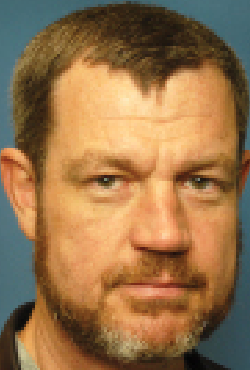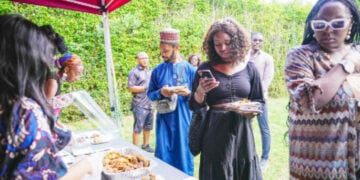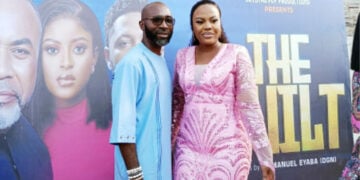At the second biennial conference of the Nigeria Academy of Letters (NAL), Nigerian artistes reflected on why arts practice in Nigeria over decades has not materialized the political and social change the nation direly needs.
Speaking at the zoom panel session titled Art & Political Expression: Exploring the Interception of Creativity & Activism, ex-National President of the Association of Nigerian Authors (ANA) questioned why despite decades of activist writers like Wole Soyinka, Chinua Achebe, Fela Anikulapo, Femi Osofisan, hasn’t wrought the political and social change Nigeria is in dire of.
Writer, D.M Dzukogi responding by noting the arts has failed to impact societal change because artistes has limited their craft to solely entertainment purposes.
“Our artistes have so far concentrated on advocacy. Artistes must go beyond advocating change to becoming active participants in the democratic process. We must begin to seek leadership positions in Nigeria. We must be active participants in the state.”
Earlier in the discuss, panelists Theatre Arts lecturer and playwright at University of Nigeria Nsukka, Ike Erojikwe said decades of living in a state of ‘state capture’ which has muzzled artistes’ freedom of expression’ have seen artistes’ prioritizing their survival before activism.
But Dr Bode Ojoniyi, an advocate for arts as a tool for reflecting the realities of their creators’ societies, countered this stating that rather than the question of survival, which is forever intrinsic in the lives of artistes, the focus should center on “is the quest for survival more important and worth compromising our values and moral?”
To ensure arts impact audience and society in extension, and engender political or social change, Australian-born but Ireland based Theatre Arts educator, musician and researcher, Matt Jennings urged artistes to tap into an existing social or political movement that resonates with the masses.
Jennings, who have been disillusioned by the creation of arts projects commissioned by government said audience simply never show up to such events as they felt they were being preached at.
Instead, he has found ability to create commendable impact via workshops targeted at groups where requisite art skills are transferred to help the people bring about change where they are.
“Whatever you do, stay true to yourself otherwise what you’d achieve won’t mean anything. More important, it’s about joy. If its fun and moves people, and makes life worth living, and keys into something that makes people enjoy their lives, then it makes people open to change.”
Meantime, Ojoniyi referencing the century-long debate of arts for arts sake vs arts for political purpose/activism said the relevancy of arts comes from its ability to address the realities of the society its created in, particularly Nigeria.
“Art is not art if its not about ensuring people’s rights. There is no art that is not concerned about a people, life, culture, relationship etc. It is about social interaction. Art is about creativity, and in literature its about the literariness, the use of words. There is no way you’d do any art that is not concerned about society, particularly society as dysfunctional like Nigeria, where the have’s keep having, there’s zero equality in all issues of life. Art confronts all these.”
Responding to a participant’s question on how to address Nollywood’s glorification of money rituals, immodest dressing and actors’ immoral lifestyle away from the camera, Ojoniyi, urged the return to true activism.
“This is what happens when we overemphasize materialism over political change. Let’s go back to real activism. Activism focused on political and social change, for culture that is concerned about others, not just ourselves and the greed to accumulate wealth.”
Art & Political Expression: Exploring The Interception of Creativity & Activism panel featured Dr Bode Ojoniyi, Dr Matthew Jennings, Dr Ike Erojikwe and Rev Sr Dr E. A Igwedibia, and is moderated by artistic director, Arojah Royal Theatre (ART), Jerry Adesewo.





